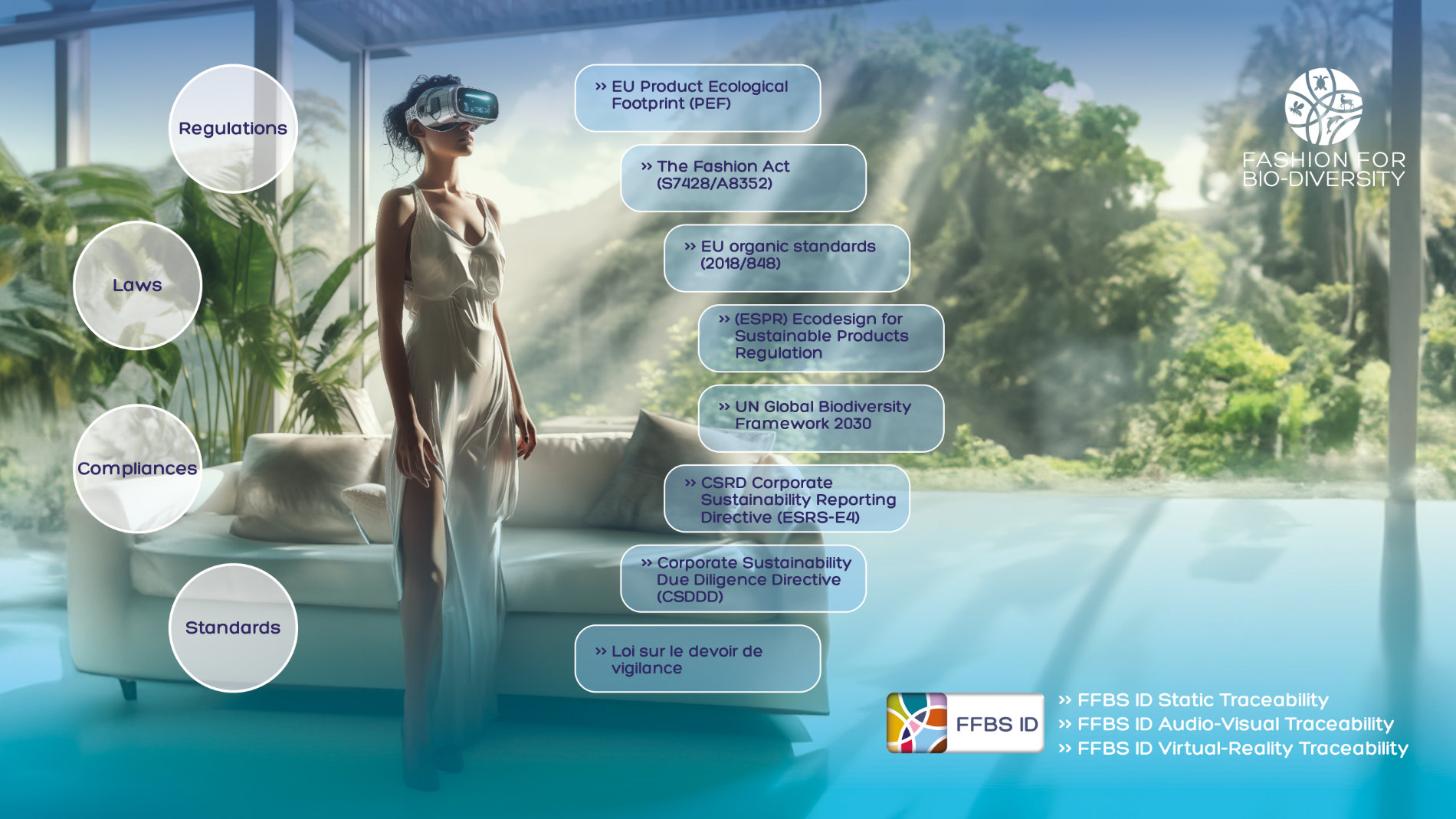Texpertise Network: Prakash, let’s start with your backstory. How did you come about the foundation of 'Fashion For Biodiversity'?

Chandra Prakash: My qualification is a mix of fashion design and sustainability in business management. Through this mix I realised that the goal of sustainable and organic fashion cannot be achieved if the local biodiversity of the raw material production sites or area is not protected.
I conducted an experiment on my silk farm in India – today’s market leader in providing peace organic silk to the sustainable fashion industry – and found that the village where my raw materials were regeneratively produced became much greener and more diverse in terms of biodiversity over the 6 years of my operation. The life cycle assessment of the regenerative farm was amazing, and for this I received the two awards in Germany.
I started using precision agriculture to manage my different farms far away from each other and realised the power of space technology in sustainability. Finally, I founded 'Fashion For Biodiversity' in 2021 with the mission to make sustainable fashion, whose supply chains can be managed in real time.
Texpertise Network: How do you counteract this with your business model?
Chandra Prakash: 'Fashion For Biodiversity' connects biodiversity, blockchain and traceability with geospatial data in an innovative way. Blockchain technology is used to improve the traceability of raw materials, and earth observation is used to determine its impact on biodiversity. This combination suggests biodiversity conservation efforts, ensuring that resources are sourced sustainably and that supply chains do not contribute to habitat destruction or species extinction.
The integration of SpaceTech and Blockchain can promote transparency and accountability in traceability, including environmental stewardship and sustainable development practices, in line with the EU Biodiversity Strategy 2030 as well as the EU CSRD (Corporate Sustainability Reporting Directive) and the ESRS E4 (European Sustainability Reporting Standards E4 – Biodoversity and ecosystems).
In addition to providing traceability, we also help fashion brands to be ready for current or future legislation or directives related to the environment or biodiversity. Our data entry on raw material level is free of human intervention and supported by geospatial data in conjunction with the EU Green Claims Directive.

Texpertise Network: Who are your clients?
Chandra Prakash: Our existing clients are fashion brands, raw material producers and farmers, sustainibility consultancies and even some insurance companies.
Texpertise Network: What is your advice to companies who want to start their journey towards traceability within their supply chains?
Chandra Prakash: My advice and plea to my potential clients is to see traceability not just as an enforced tool of legislation or compliance, but to use it to make their supply chain more environmentally responsible, effective and resource efficient for long-term profitability. As we say, there will be no business on a dead planet.
Texpertise Network: Speaking of profitability: Your service initially requires a high investment, right?
Chandra Prakash: Our subscription is pocket friendly. We offer three types of traceability services: Static Traceability, Audio-Visual Traceability with video and images from the supply chain, and Virtual-Reality Traceability, which is B2C-ready for a unique retail experience and customer acquisition tool. Depending on the number of products to be tracked our static and audio-visual tracking start from 99 and 399 Euro.
Texpertise Network: The EU Commission's recent withdrawal from the pesticide reduction law and the EU's postponement of the supply chain law are likely to be a serious backlash to your work. What are your thoughts?
Chandra Prakash: In my opinion, the withdrawal of the Sustainable Use Regulation, which aimed to halve pesticide use by 2030, is regrettable. The postponement of the EU's Corporate Sustainability Due Diligence Directive shows the short-sightedness of some policymakers on such an important decision.
In both cases, I also feel that although they are very important pieces of legislation for a sustainable future, how to implement them properly to achieve the respective goals has not been defined. EU businesses already face a huge amount of red tape and more red tape can be counterproductive. 'Fashion For Biodiversity', with its real-time data, can be a good partner for fashion companies to address these important laws and directives.
Fashion industry and biodiversity
"According to the World Economic Forum, more than 50% of global GDP (Gross World Product) is highly or moderately dependent on biodiversity. Fashion and biodiversity are often at odds with each other, resulting in 300 million trees being cut down annually for fashion raw materials and a 10% increase in carbon emissions." (Chandra Prakash)
Sustainability terms at a glance
The term Precision Agriculture (PA) refers to a modern concept of agricultural management that is characterized by using digital technologies to monitor and optimize agricultural production processes. Instead of treating an entire agricultural field with the same amount of fertilizer or providing a large livestock population with the same amount of feed, PA measures different conditions within a field and adjusts the fertilization or harvesting strategy accordingly. Similarly, the needs and condition of individual animals in larger herds are determined and feeding per animal is optimized accordingly.
Biodiversity refers to the variety and variability of life on Earth. Biodiversity is critical to the health and resilience of ecosystems and the provision of services essential to human survival, such as pollination, water purification and climate regulation.
Blockchain is a distributed ledger technology that makes data secure, transparent, and tamper-proof. Blockchain is currently being used in the fashion industry to create a digital-product-passport for transparent supply chain management and digital identity verification.
Traceability is the ability to track something. In textile supply chains, it refers to the ability to track the movement of a fashion item from its source, through all stages of raw material sourcing, fibre, yarn, and textile production, and finally to cut-make-trim process.
